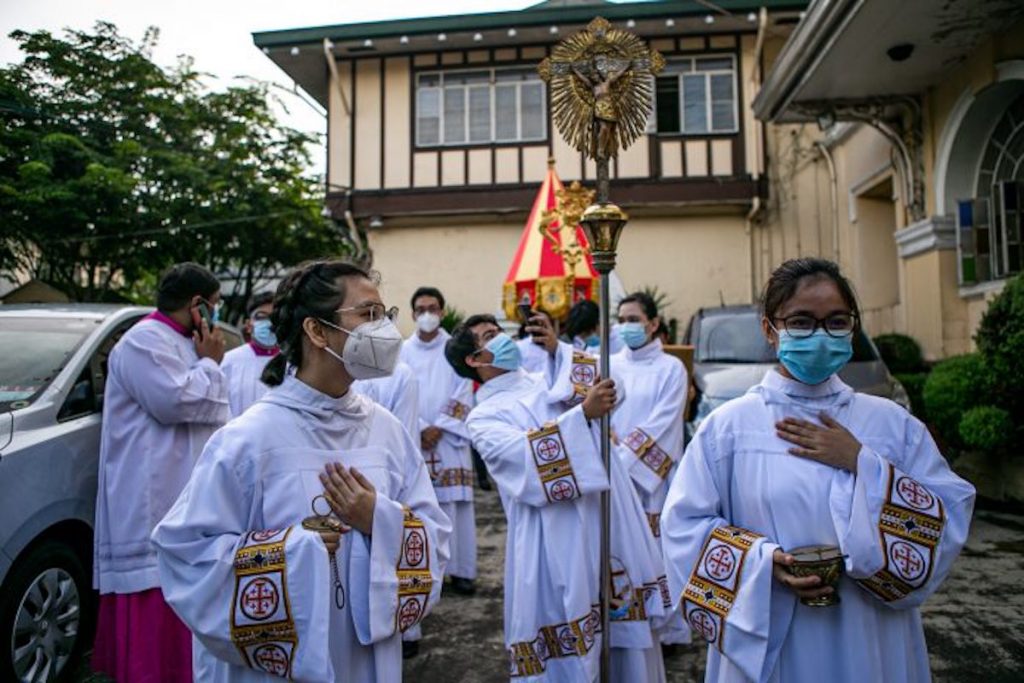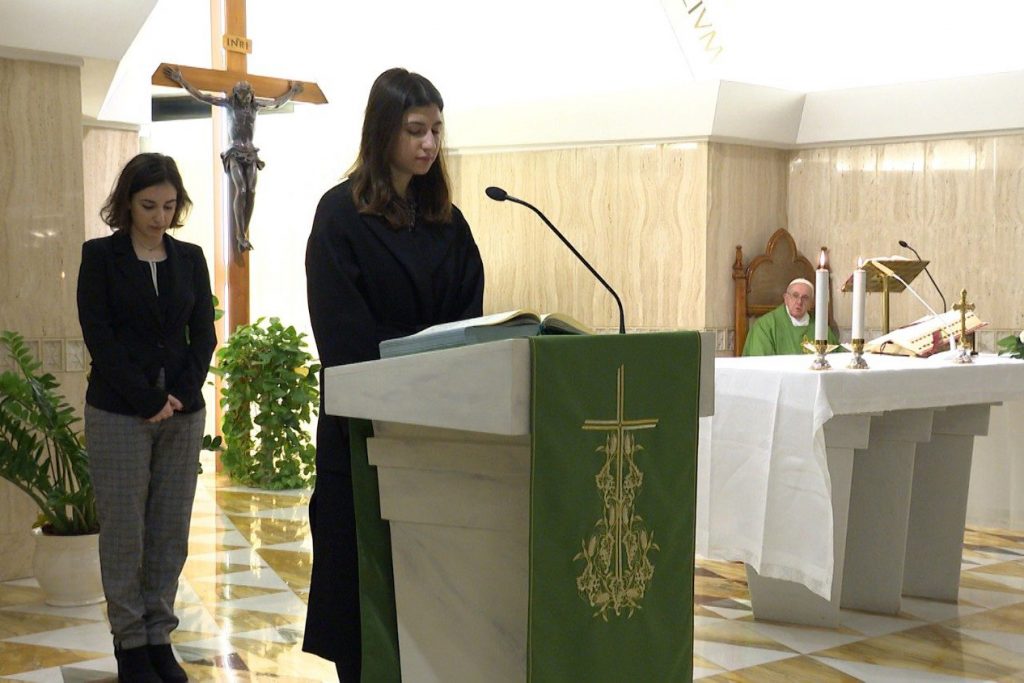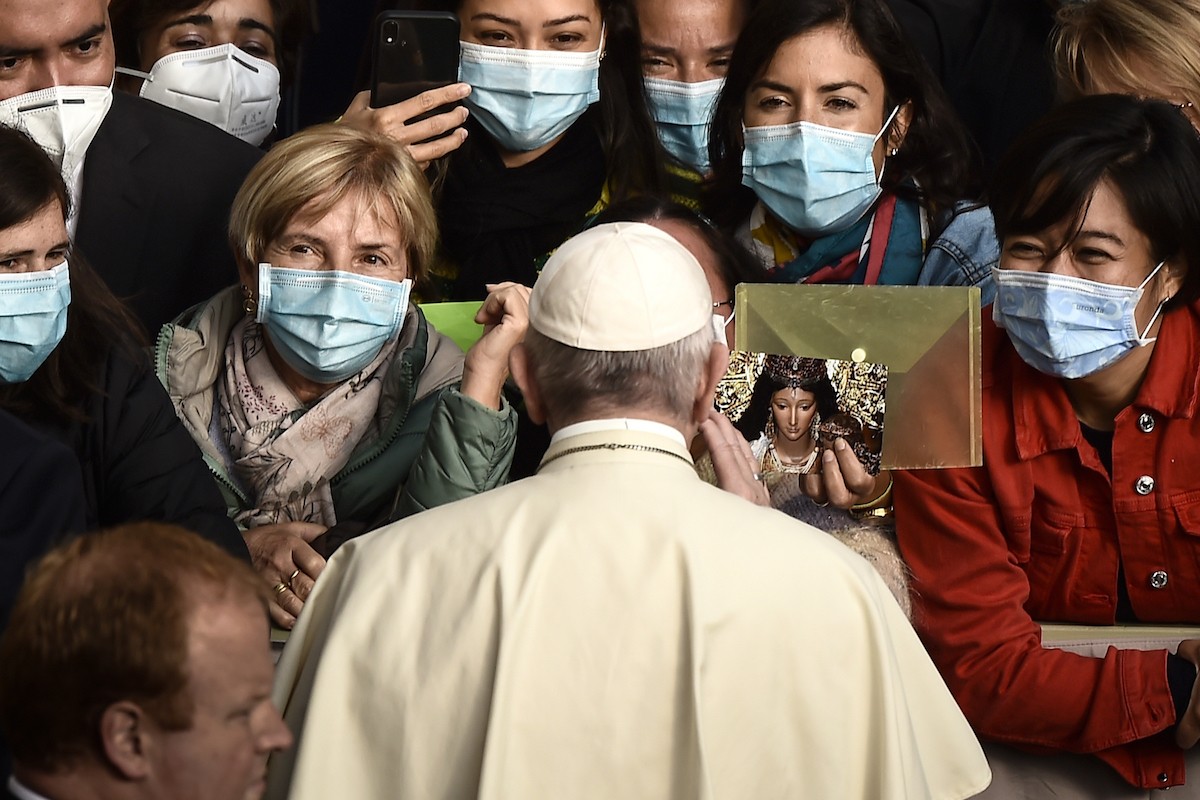Pope Francis, in another step toward greater equality for women in the Catholic Church, issued a decree allowing women to serve as readers at liturgies, altar servers, and distributors of communion.
The pope formalized what already has been happening in many countries for years. But with the change in the Code of Canon Law, conservative bishops will not be able to block women in their diocese from those roles.
The Vatican, however, stressed that the roles were “essentially distinct from the ordained ministry” and were not an automatic precursor to women one day being allowed to be ordained priests.
In the decree “Spiritus Domini” (The Spirit of the Lord), Pope Francis said he had acted after theological reflection.
In an accompanying letter, the pope said he wanted to bring “stability, public recognition” to women already serving in the roles.
The decree modified the first paragraph of Canon 230 of the Code of Canon Law and establishes that women can have access to the ministries and that this be recognized through a liturgical act formally instituting them.
“A doctrinal development has been arrived at in these last years that has brought to light how certain ministries instituted by the Church have as their basis the common condition of being baptized and the royal priesthood received in the Sacrament of Baptism,” the pope said.
The new formulation of the canon reads: “Lay persons who possess the age and qualifications established by decree of the conference of bishops can be admitted on a stable basis through the prescribed liturgical rite to the ministries of lector and acolyte.”
The specification “lay men” qualifying the laity and present in the code until today’s modification, is, therefore, abolished.

In his letter addressed to the Prefect of the Congregation of the Doctrine of the Faith, Pope Francis explained the theological motivations behind his decision.
“Within the spectrum of renewal traced out by the Second Vatican Council, the urgency is being ever more felt today to rediscover the co-responsibility of all of the baptized in the Church, and the mission of the laity in a particular way.”
Citing the Final Document of the Synod for the Pan-Amazon Region, the pope noted that “regarding the entire Church, in the variety of situations, it is urgent that ministries for men and women be promoted and conferred.”
He said that it is the Church “made up of baptized men and women that we must consolidate, promoting forms of ministry and, above all, an awareness of baptismal dignity.”
In his letter, the pope recalled the words of Pope St. John Paul II that “regarding ordained ministries, the Church does not have the faculty in any way to confer priestly ordination on women.”
Pope Francis added that “regarding non-ordained ministries, it is possible, and today it seems appropriate, to surmount this reservation.”
He explained that “to offer to lay persons of both sexes the possibility of accessing the ministries of acolyte and lector, in virtue of their participation in the priesthood of the baptized, the awareness will grow, through a liturgical act (of institution) as well, of the precious contribution that many lay persons, including women, have been offering for some time to the life and mission of the Church.”
“The decision to confer these offices even on women, which entails stability, public recognition and a mandate on the part of the bishop, will make more effective everyone’s participation in the work of evangelization,” said Pope Francis.

Pastoral realities
“This shift brings the institutional Church in alignment with the pastoral realities around the world,” said Kate McElwee, executive director of the Women’s Ordination Conference, which promotes a female priesthood.
In a big shift last August the pope appointed six women, including the former treasurer for Britain’s Prince Charles, to senior roles in the council that oversees Vatican finances.
Pope Francis has already appointed women as deputy foreign minister, director of the Vatican Museums, and deputy head of the Vatican Press Office, as well as four women as councilors to the Synod of Bishops, which prepares major meetings.
He has also set up commissions to study the history of women deacons in the early centuries of the Catholic Church, responding to calls by women that they be allowed to take up the role today.
Advocates of a female deaconate hope it could lead to women priests.
Deacons, like priests, are ordained ministers, and as in the priesthood, must be men in today’s Church.
They may not celebrate Mass, but they may preach, teach in the name of the Church, baptize and conduct wedding, wake and funeral services and even run a parish with the permission of a bishop.
With Reuters







